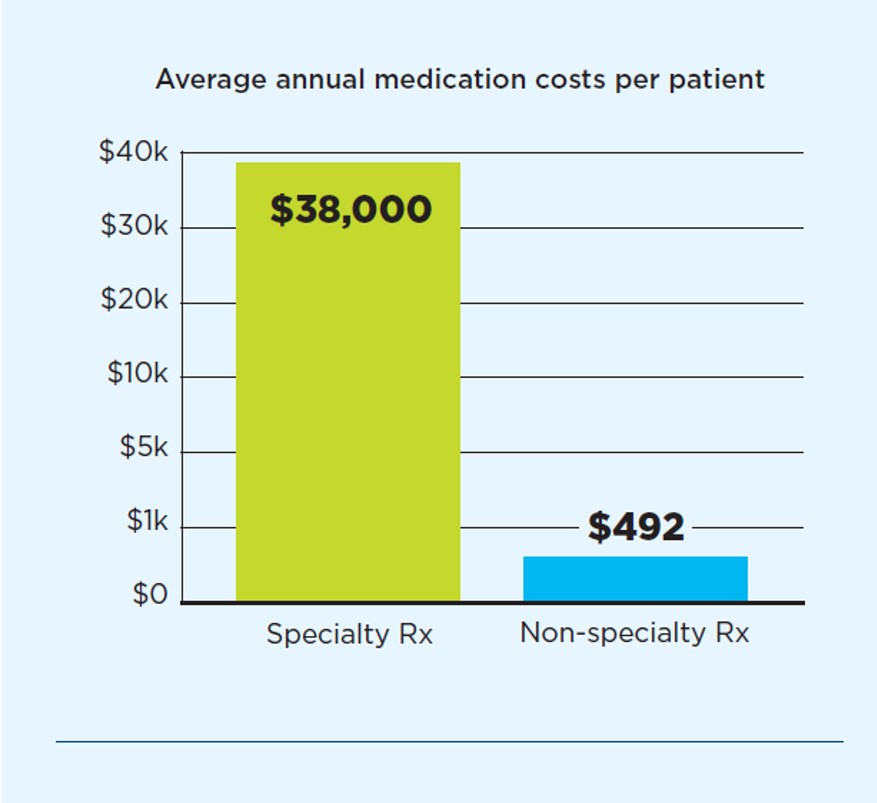Cigna Healthcare has found that the average annual price of therapy for specialty drugs is $38,000 per patient, which is 75 times higher than non-specialty prescription drugs.

Specialty medications — treatments for rare, chronic, and complex diseases — once occupied a very small niche in the pharmacy market. Now they are the prevailing category across the pharmaceutical research and development pipeline. It is estimated that two-thirds of new drug launches next year will be for specialty therapies, and the specialty market itself is projected to grow by $118 billion by 2025.
A significant factor of this innovation and market growth is the expanding population of people who may benefit from specialty medications. The number of people living with chronic and complex health conditions that are typically alleviated by specialty treatments, such as cancer and autoimmune disease, continues to increase. Meanwhile, new gene and cell therapies are expanding their scope beyond extremely rare diseases afflicting relatively few individuals to offer promising treatments for hemophilia A, Duchenne muscular dystrophy, and other conditions that affect many more people.
The massive influx of innovation in specialty medicine has the potential to advance the health and lives of millions. However, these breakthrough treatments can be out of reach for the people who need them, with costs that can be financially challenging to both them and their health plans.
 Cigna Healthcare has found that the average annual price of therapy for specialty drugs is $38,000 per patient, which is 75 times higher than non-specialty prescription drugs. Specialty medications already account for more than half of overall drug spending in the United States, and the added expense of future products threatens the sustainability of the health care system.
Cigna Healthcare has found that the average annual price of therapy for specialty drugs is $38,000 per patient, which is 75 times higher than non-specialty prescription drugs. Specialty medications already account for more than half of overall drug spending in the United States, and the added expense of future products threatens the sustainability of the health care system.
According to a newly published Cigna Healthcare white paper, the success of specialty medications will depend on the ability of the health care system to effectively manage them — making sure the people who need these medications can access them, as well as use them properly and safely.
To achieve these objectives, Cigna Healthcare and Evernorth have strategies and solutions in place to:
- Drive access and affordability by leveraging payment and care management expertise to lower treatment costs for payers, mitigate out-of-pocket expenses for patients, and advance biosimilar competition to help drive lower biologic drug prices, which are set by pharmaceutical manufacturers.
- Help ensure people receive quality care and services by connecting patients to the most appropriate and cost-effective medications, in a preferred treatment setting, with safe and proper usage — to achieve maximum health outcomes with minimum systemic waste. Additional supportive care services, such as nutrition planning and mental health support, can help mitigate other health or lifestyle issues.

Making Specialty Medications More Accessible, Affordable, and Effective
According to a newly published Cigna Healthcare white paper, the success of specialty medications will depend on the ability of the health care system to effectively manage them.